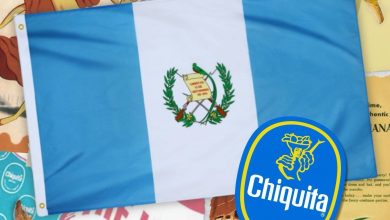Swapping Chains: the Rohingya of Myanmar Under Aung San Suu Kyi

“Aung San Suu Kyi: ‘I don’t think there is ethnic cleansing going on’ in Myanmar” / Video, BBC News
On June 22, Burmese state media claimed security forces located a “terrorist” training camp in the Maku mountains of Rakhine State of Myanmar. Allegedly administered by Rohingya Muslim militants, the ensuing three deaths were the latest in a series of violent attacks on the Rohingya people, a minority Muslim group in the predominantly Buddhist country.
Regarded as one of the most persecuted groups in the world, the Rohingya are almost completely disenfranchised, and many individuals are confined to living in internment camps. Over 100,000 internally displaced persons lack freedom of movement or access to food, water, sanitation, healthcare, and education. Rohingya are officially considered stateless – one million reside in Rakhine State alone.
Despite having lived in the area for centuries, the government of Myanmar views the Rohingya as illegal Bangladeshi immigrants. Nonetheless, Rohingya are also unwanted in Bangladesh where they are not recognized as refugees. In light of a crackdown on trafficking via ocean routes, Rohingya persons are increasingly relying on complex smuggling operations to escape from Myanmar and neighboring Bangladesh, or settling for buses and migration on foot to regions including India, Kashmir, Nepal, and Pakistan.
Security forces involved in the abovementioned three deaths insist the fatalities were out of self-defense. Whether true or false, this is a hypocritical response particularly considering the retaliatory massacre of Rohingya men, women, and children in December 2016 and the perpetual violence, displacement, and destruction of Rohingya lives.
Dr. Maung Zarni, an exiled Burmese dissident and UK-based scholar, argues the deaths of nine Burmese policemen in October 2016 were the result of a scheme to lure young, angry Rohingya men to attack. The dispute led to the subsequent brutal “clearance operation” by Burmese security forces. The militant group implicated for the training camp and earlier attacks, Arakan Rohingya Salvation Army, maintains they avoid civilians and fight solely for political rights for the oppressed minority group.
A February 2017 United Nations report labeled the arson, gang rapes, and mass killings of the resulting December campaign “very likely” crimes against humanity and “possibly” ethnic cleansing. To escape the military crackdown, 75,000 Rohingya fled Rakhine State to Bangladesh, joining the 200,000 already living in camps lacking sufficient resources to support survivors.
Such reports are not new. Human Rights Watch declared Burmese authorities committed crimes against humanity in the 2012 ethnic cleansing campaign against Rohingya Muslims. According to the document, “Burmese officials, community leaders, and Buddhist monks organized and encouraged ethnic Arakanese backed by state security forces to conduct coordinated attacks on Muslim neighborhoods and villages… to terrorize and forcibly relocate the population.”
The present Myanmar State Counsellor and de facto leader, Aung San Suu Kyi, is a past winner of the Nobel Peace Prize, yet to this day, she has denied genocide and ethnic cleansing. Throughout her time in power, Suu Kyi has systematically aligned herself with the perpetrators, insisting the Rohingya are Bengali immigrants and remaining unwilling to confront the military about the abuse.
On June 29, the Burmese government headlined by Suu Kyi refused entry to members of a UN investigation examining allegations of killing, rape, and torture by security forces against Rohingya Muslims. Suu Kyi cited the potential for “heightened hostilities” as the reason for denying the UN mission.
Suu Kyi may see sustainable peace as her signature governing project, yet hopes founded on these words are quickly being dashed by inaction. Soldiers have barred aid workers from the Muslim-majority Rakhine region. The government has approved restrictions on free speech. Much-needed reforms to bolster the stagnated economy are being ignored.
Suu Kyi was once the one imprisoned – 15 years under house arrest – yet now it is her people who are abused and enchained.




